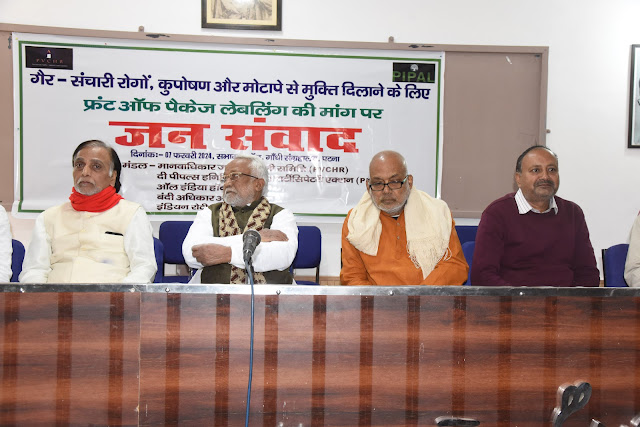Addressing the Public Health Crisis: Rising Non-Communicable Diseases in India
- Get link
- X
- Other Apps
The prevalence of non-communicable diseases (NCDs) in India has reached alarming levels, posing a severe public health crisis. Recent data and studies highlight the urgent need for effective measures to combat these diseases.
The Grim Statistics
- NCD Mortality: Nearly 58 lakh people in India die from NCDs each year out of nearly 90 lakh overall deaths.
- Childhood Nutrition and Obesity: According to the National Family Health Survey (NFHS-5-2021), under-nutrition in children remains stagnant, with one in three children affected. Simultaneously, obesity is on the rise among children under five years old. The percentage of obese women increased to 24% from 20.6% in 2015-16, and for men, it rose to 22.9% from 18.4% in the same period.
- Diabetes and Hypertension: The International Council of Medical Research – India Diabetes (ICMR-INDIAB) study reveals that as of June 2023, India had approximately 10.1 crore people with diabetes, 13.6 crore with prediabetes, 31.5 crore with hypertension, and 25.4 crore with generalized obesity.
- Metabolic Obesity in Children: The Comprehensive National Nutrition Survey (CNNS) 2016 reported that over half of the children surveyed exhibited signs of metabolic obesity, regardless of their weight or height.
- Ultra-Processed Foods (UPFs): Consumption of UPFs in India has significantly risen. A 2020 study by the Food Safety and Standards Authority of India (FSSAI) showed many categories of these foods failed on thresholds for energy, total sugar, added sugar, total fat, saturated fat, and sodium.
The Need for Front-of-Package Warning Labels (FOPL)
Given these alarming statistics, it is crucial to expedite the implementation of Front-of-Package Warning Labels (FOPL) on packaged foods. These labels will serve as a powerful tool for consumers, allowing them to easily identify and understand the nutritional content and harmful ingredients present in packaged foods and beverages, enabling healthier choices.
Call to Action
We urge the National Human Rights Commission to continue its proactive role in this matter by engaging with relevant authorities to ensure swift action on this critical public health issue. The steadfast dedication to the well-being of our citizens, especially children, youth, and women, is commendable and greatly appreciated.
Conclusion
Addressing the rising prevalence of NCDs requires concerted efforts from all stakeholders. By implementing FOPL and promoting healthier dietary choices, we can significantly mitigate the impact of NCDs and enhance the health and well-being of our population.
Shruti Nagvanshi, Convenor, Savitri Bai Phule Women Forum, and Shirin Shabana Khan, Program Director, People's Vigilance Committee on Human Rights, continue to champion health equity at the grassroots. Their efforts highlight the urgent need for systemic changes to combat the growing public health crisis in India.
Addressing the Public Health Crisis: Rising Non-Communicable Diseases in India by pvchr.india9214 on Scribd
- Get link
- X
- Other Apps





Comments
Post a Comment